In response to the pandemic, the federal government declared it delivered ‘10 years of reform…
Farmers at the frontline of rural crime
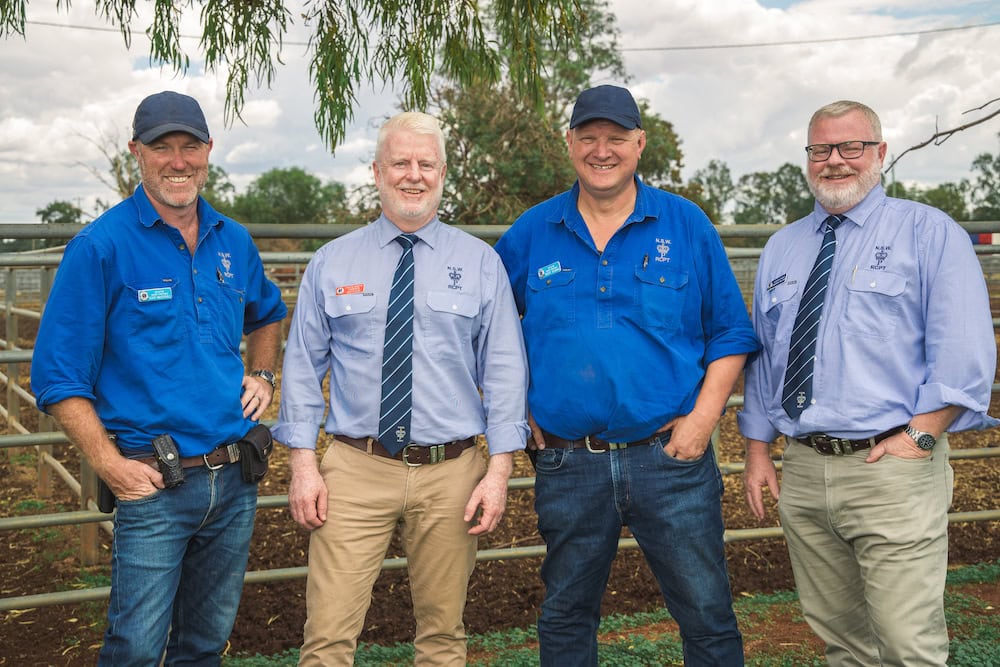
According to research in the NSW Farm Crime Survey 2020, 81 per cent of NSW farmers are feeling victimised by crime. To combat this, an initiative to embed police with backgrounds in primary production into rural communities is showing positive results. However, successfully solving criminal activity relies on farmers reporting the offences, and for it to be even more effective there needs to be solid evidence to support a prosecution.
Detective Chief Inspector Cameron Whiteside is the first to admit police have made mistakes in the past. He is the State Rural Crime Coordinator, heading up the Rural Crime Prevention Team (RCPT), a specialist unit of detectives in the NSW Police, supported by forensic criminology analysts. RCPT detectives are recruited into rural police districts.
“The uniformed officers will always be the first responders, but the RCPT detectives follow up when it’s identified as a crime related to pastoral, agricultural and aquaculture activities,” Cameron says.

A new way of supporting farmers
“We recognised farmers in general have a history of negative experiences with police,” Cameron says.
“In recruiting detectives to our team, we have specifically targeted men and women with backgrounds demonstrating they understand the industries. They have been jillaroos or jackaroos, commercial fishermen, shearers, cattle breeders, livestock agents, and farmers themselves.”
As well as identifying a new policing model, especially as its momentum and engagement with local community has been affected by coronavirus restrictions, NSW Police has had to carefully manage the willingness of occasionally suspicious rural communities to engage with police.
An additional initiative was to establish a Rural Crime Advisory Group with representation from NSW Farmers, RSPCA, NSW Parks and Wildlife Service, the Department of Primary Industries – specifically hunting and fishing officers, Local Land Services, government stakeholders, and police.
This work has led to international recognition, with the NSW Police Force RCPT recently awarded the 2021 ISSRC Policy, Practice and Engagement Award in December. The International Society for the Study of Rural Crime (ISSRC) is made up of scholars, students and practitioners from around the world with an interest in research aimed at reducing crime in all its forms in rural areas.
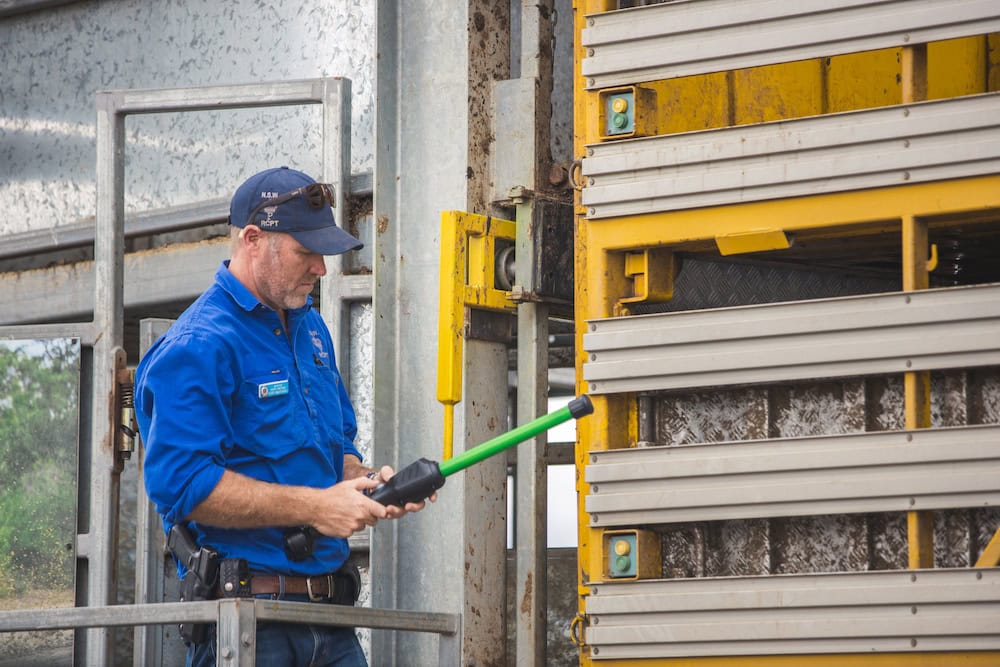
Education and reporting of crimes
NSW Farmers Regional Service Managers and members of the RCPT held workshops in 2018, meeting directly with farmers to build local connections. One of the biggest challenges is gathering enough evidence, and so the workshops focused on understanding how to preserve a crime scene.
However, often by the time a farmer is aware of, for instance, theft, the stolen fuel, livestock, wool, machinery or equipment could have been taken weeks or even months prior.
James and Rachel Foster, livestock graziers at Westleigh near Walgett, have experienced the theft of sheep and goats many times – including 90 per cent of lambs from one flock a week before they were planning to mark them. Sometimes James has reported the crime to police, other times he hasn’t. Sometimes he has recognised the perpetrator as a local person. Although the livestock loss is something he can’t recoup, he has taken the option of “having a chat” with the thief’s father about getting that person to realise the error of their behaviour.
“You look for motorbike or quad bike tracks,” James says. “I’d say with good dogs to hold the flock, the thieves go in and pick out the best lambs.”
Sometimes he or his neighbours have seen evidence of a temporary set of yards erected alongside a gravel road, and tyre marks from a truck or trailer.
“You can see on the shire road where they’ve pulled up with a trailer, and they have good dogs,” James says. “Everything is tagged and earmarked, but they cut the tag out and put another one in.”
Three years ago, James noticed a fence was lifted and 90 sheep were missing from the paddock it surrounded. With up to three weeks between checking livestock, he realised this meant a lack of forensic evidence to help investigating police.
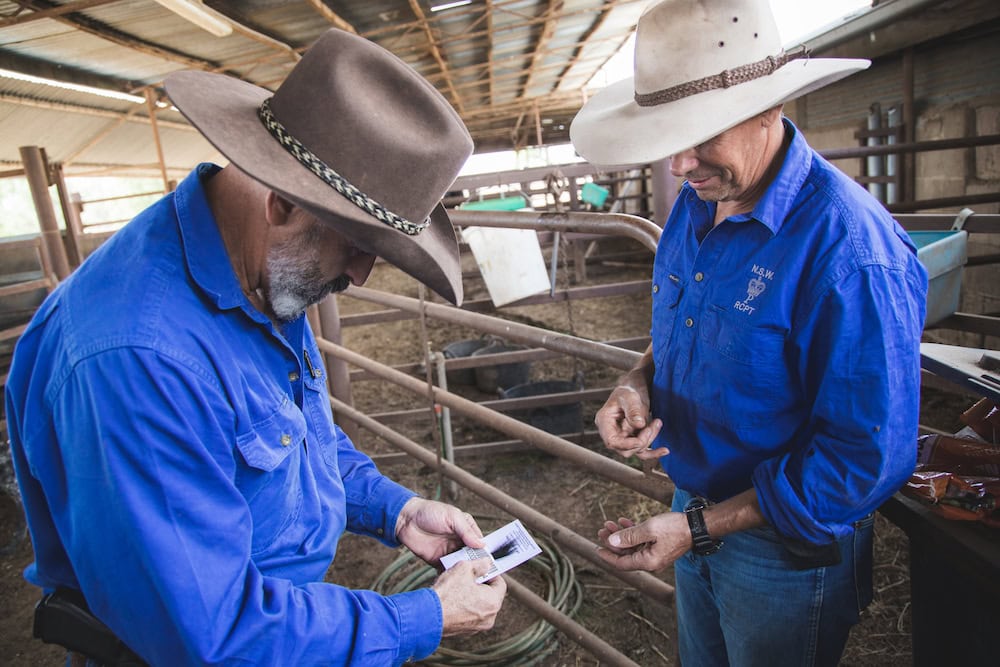
Since the RCPT began, James hasn’t had any livestock thefts, and progress has been made.
In September, police charged two men after seven heavy vehicle trailers and a prime mover – all reported stolen by their owners – were recovered in the Monaro and Hume districts.
Detectives charged a Kooringal man with 77 offences after investigations into trespass and hunting offences.
The New England RCPT are investigating the theft of mixed age Dorper and Aussie White ewes from a Bukkulla property. The sheep are tagged and earmarked and were due to lamb in late September.
In August, 200 one-year-old ear-tagged Merino lambs were reported stolen from Euston. The best guess of the owner is the lambs went missing between April and August.
Winter and the beginning of spring bring more trespass offences as people cut paddock fences to hunt illegally on properties. Farmers across mid-western NSW, Richmond, Hume, Hunter Valley, Central West, and Chifley police districts began reporting offences in June, August and September.
RCPT detectives have been able to charge some offenders, while other reported instances are still being investigated.
According to the NSW Farm Crime Survey, research undertaken through the University of New England shows trespass, illegal shooting and hunting and livestock theft create a high level of anxiety for farmers. This anxiety is tied in with farmers’ responsibility for guaranteeing biosecurity with consumers and Australia’s food and fibre trading partners.
“We found 30 per cent of farmers experienced multiple criminal offences against them,” says Kyle Mulrooney, lead researcher from UNE’s Centre for Rural Criminology.
But interaction between farmers and RCPT detectives was building confidence in their concerns about being seen and heard, Kyle said.
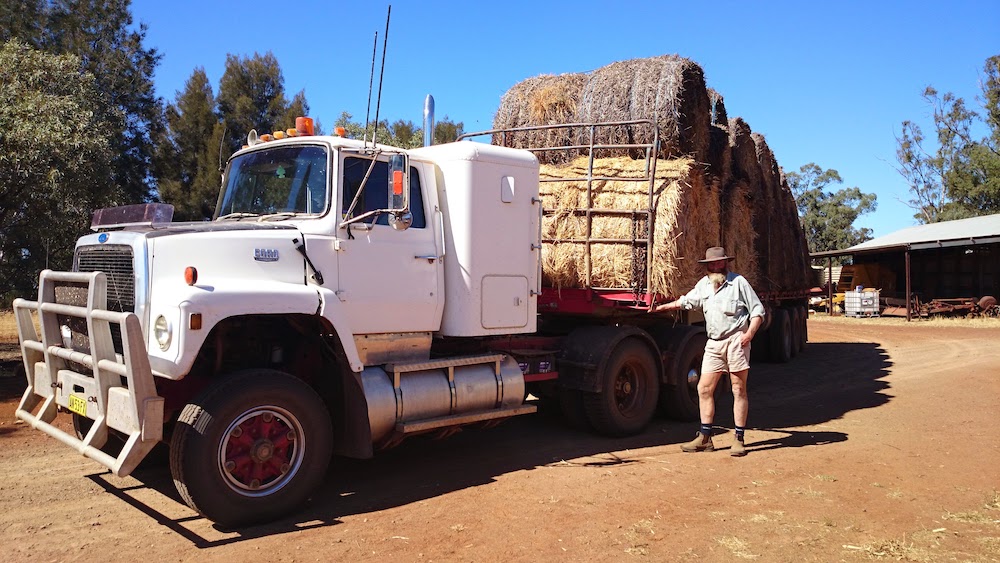
The Regional Services Managers team at NSW Farmers has set up monthly meetings with the Rural Crime investigation Group to exchange rural crime insights and organise more local engagement. The NSW Farmers’ Yass Branch will be the first to hold an event in November with the Hume District Rural Crime Investigators coming to update members on local crime activity and prevention.
“NSW Farmers worked tirelessly to bring focus to rural crime and it is great to see the expanded resourcing and hear of the team’s success – we look forward to seeing them at branch meetings,” said NSW Farmers Regional Service and Sales Manager Jonathan Tuckfield.
NSW Farmers’ members can chip in
NSW Farmers wants its members to report crimes, whether they occur today or months ago. This call to farmers is supported by Cameron Whiteside.
“When farmers report crimes against them, we may not be able to help immediately but it helps to build a picture of what is happening in the local area, and that may connect to crimes committed in other areas,” Cameron says.
“The seven heavy vehicle trailers and a prime mover – all reported stolen by their owners across NSW – were recovered in Monaro and Hume districts.
“Our detectives also raise awareness among their uniformed colleagues in rural areas. Uniformed patrol officers can be confident about explaining why they’re stopping the driver of a horse trailer or campervan at 2am – that the vehicle could contain stolen livestock. Their explanation builds better rapport with the general public.”
The RCPT also employs sworn forensic analysts who ‘data-crunch’ – when one farmer in the south reported 200 stolen sheep, the report matched another farmer’s theft in another, northern, district. The link, apart from the same number of sheep, was a stockman who had worked for both farmers.
“We also work with interstate colleagues, tracing livestock and rural equipment theft across State and Territory borders,” Cameron says.
In the meantime, the NSW Police Minister, David Elliott, said the government remains committed to supporting the RCPT unit, with a dedicated skilled workforce of police spread across the State.
“The positions within the Rural Crime Prevention Team are placed in the police districts most in need across NSW,” Minister Elliott says.
If you enjoyed this feature on rural crime, you might enjoy reading our feature on illegal cacti.






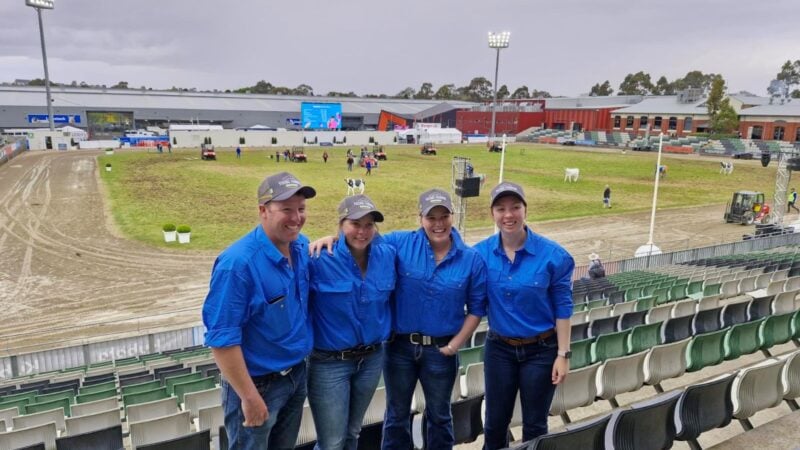


I wish Victoria had a real stock squad.